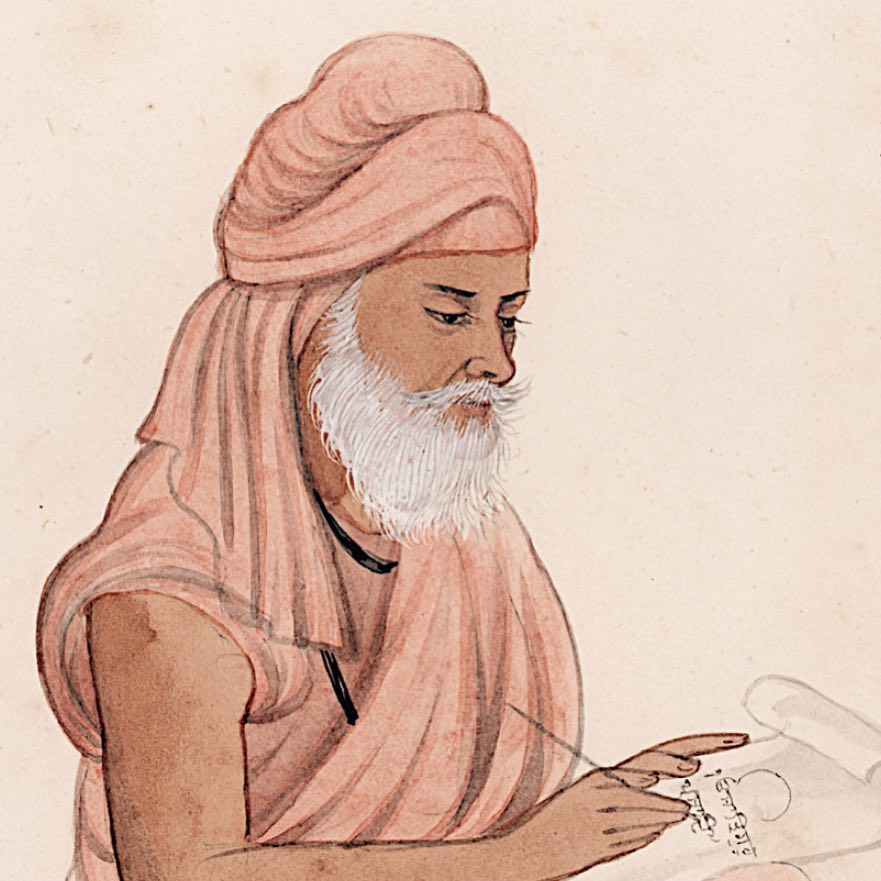Explore the life of Sant Sangat Singh, a Sikh saint renowned for his piety, scholarship, and impactful preaching of Guru Nanak's gospel.
Learn about Sant Atar Singh's devotion to rebuilding Reru Sahib and fostering Sikh education. Explore his inspiring journey of seva in Ludhiana.
Explore the spiritual journey of Baba Harnam Singh, an ascetic saint from Punjab known for his piety, devotion, and profound influence until 1927.
Discover the life of Sant Nand Singh, a revered Sikh saint who established numerous preaching centers, emphasizing the value of kirtan and simaran.
BECHINT SINGH, BHAI (1872-1921), one of the Nankana Sahib martyrs, was the son of Bhai Sundar Singh and Mat Sahib Kaur, a peasant couple of the village of Pharala in Jalandhar district. The family migrated to Chakk No. 258 Pharala in the newly colonized district of Lyallpur in 1892. In 1907, while returning from Haridvar after immersing in the River Ganga the ashes of his deceased wife, Bechint Singh stayed for a couple of months at Amritsar where he came in contact with a holy man, Sant Kirpal Singh, at whose hands he took the pahul of the Khalsa.
Explore the legacy of Sant Hira Singh, head priest of Hazur Sahib, known for his devotion and protection of Sikh sanctity in Nanded. Learn more now.
NIDHAN SINGH, SANT (1882-1947), holy man popularly known as Hazur Sahibvale, was born the son of Bhai Uttam Singh of the village of Nidalori in Hoshiarpur district of the Punjab. He received religious instruction at the hands of Sant Divan Singh, popular in the area for his holiness. He left his home at the age of 20 and enlisted in the 5th Probyn`s Horse, a cavalry regiment of the Indian army, atJharisi. But he resigned within a year and set out on pilgrimage to Takhl Sachkhand Sri Hazur Sahib, Nanded, where he took up his permanent abode and found his calling in work in Guru ka Larigar.
Explore Sant Singh's heroic role with Guru Gobind Singh and his impactful leadership in Sikh history and culture.
BHAG SINGH, SANT (1766-1839), of Kuri. a holy man widely respected in his time, was born the son of Bhai Hans Rai in 1766 at Qadirabad, a village in Gujrat district (now in Pakistan), where his grandfather, Gurbakhsh Singh, said to have been in the retinue of Guru Gobind Singh, settled after the Guru`s passing away at Nanded, in the Deccan. Bhag Singh learnt to read Gurmukhi letters and the Guru Granth Sahib at the village gurdwara. As he grew up, he made a pilgrimage to Nanded. Returning to the north, he visited Una, now in Himachal Pradesh, where he became a disciple of Baba Sahib Singh Bedi, a descendant of Guru Nanak in direct line.



